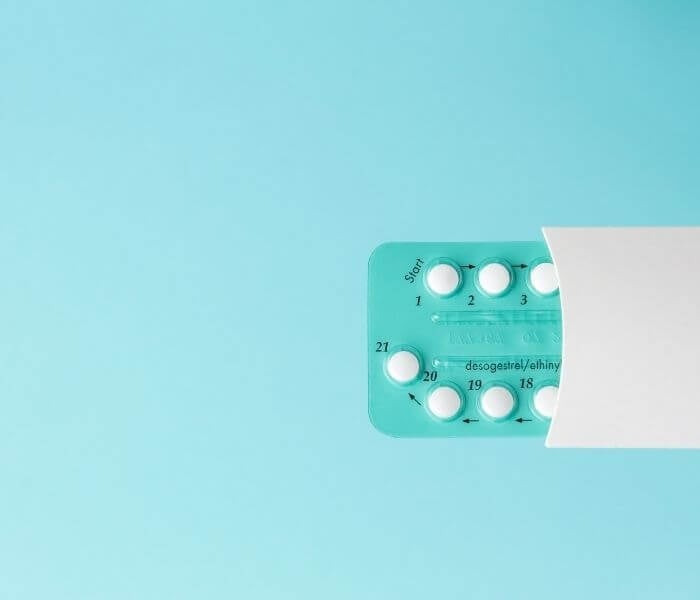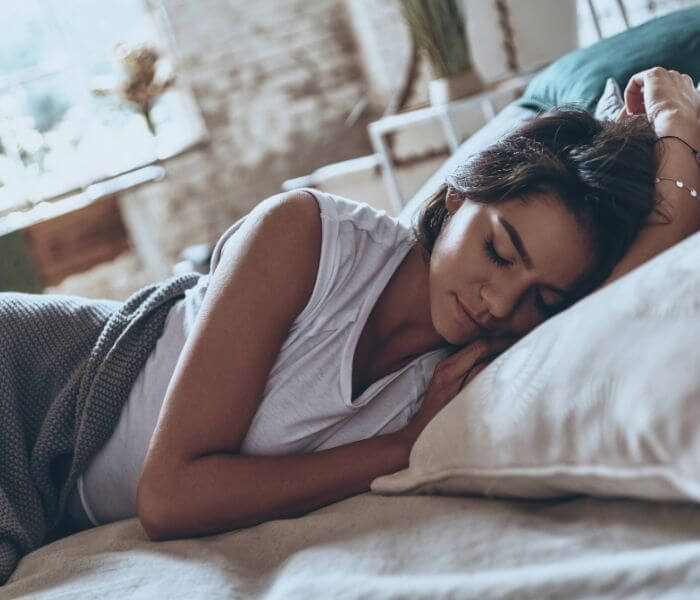4 mins read
How To Come Off Hormonal Contraception

Birth control has been used since the 60s to control fertility and has revolutionised women’s lives.
However, by their very nature, hormonal contraception impacts women’s natural hormone fluctuations by disrupting the complex interplay between the control hormones (FSH, LH) and the ovarian response hormones (oestrogen and progesterone). This hormone network is key to women’s health and wellbeing, not just fertility.
So, if you’ve decided, for whatever reason, to come off hormonal contraception what’s the best approach to take? And what are the likely side effects?
How To Come Off Hormonal Contraception
There is no specific way you need to come off hormonal contraception you can just stop, and your hormones will adjust back to the natural fluctuations across the menstrual cycle.
If you are taking oral contraception, then it is advised that you come off once you’ve finished your last course of tablets – although you can stop taking oral contraception at any time.
If you are using other methods of hormonal contraception such as IUD then you will need to see your GP or healthcare professional to have it removed.

How Long Does It Take For Your Body To Get Back To Normal After Birth Control?
When you stop using hormonal birth control, it can take a few weeks for your body to get back to normal. Some women have a period between 2 and 4 weeks after stopping the pill but this can depend on the individual and their cycle. When you first stop taking the pill, it can take up to three months for your periods to become more regular. Therefore, it is important to give your body time to readjust and allow your cycle to re-establish itself.
When you stop taking the pill, the first period following is called a withdrawal bleed. The bleed after this one is your first natural period [3].
There is no evidence to suggest that the use of hormonal contraceptives negatively affects fertility [4]. In fact, some women fall pregnant immediately after they stop using birth control.
Coming Off Birth Control
Some women experience some side effects when they begin using hormonal contraception. It’s also not uncommon to experience some changes when they stop using hormonal contraceptives, too.
There have been anecdotal reports of symptoms such as [6]:
- changes in the menstrual cycle
- heavier periods
- cramping during ovulation
- premenstrual syndrome (PMS)
- changes in mood
- weight changes
- acne
- unwanted hair growth
- headaches
- tender breasts
- changes in sex drive
The term “post-birth control syndrome” has been widely used on the internet and within the holistic world to describe the symptoms some women experience after coming off of hormonal contraception.
However, in the medical world, there is no evidence that such a condition exists. After stopping hormonal contraception, if your periods do not resume within 6 months you should consult your doctor for further investigations.
Equally, if you were prescribed hormonal contraception for reasons other than to prevent pregnancy, such as to treat acne, heavy periods, or conditions like PCOS, it is likely these pre-existing issues will return once you stop.
How To Improve Symptoms After Getting Off The Pill
When you stop using hormonal birth control, it is likely that you will notice some changes. That’s because your body is changing back to its pre-birth control state. The symptoms vary from person to person as a woman’s natural menstrual cycle is totally unique to her.
There are things you can do to support hormone health such as eating a healthy balanced diet, reducing stress and taking plenty of exercise combined with adequate rest.
When To Seek Help
If you are struggling with the symptoms since stopping hormonal birth control, then you may need to seek medical advice.
If you are interested in finding out more about your natural hormone fluctuations across your entire menstrual cycle after stopping hormonal contraception, then our advanced female hormone test, MyFORM™, can help. Once you’ve had your first breakthrough bleed after stopping contraception and start to have your natural menstrual cycle, you will be able to use our test. The test measures your hormone levels from finger-prick blood samples taken on day 14 and day 21 of your cycle.
Conclusion
There are no specific ways to come off hormonal contraception and you can stop whenever is the right time for you.
Your hormones may take a few weeks to get back to normal and for your periods to return. But otherwise, unless you were taking hormonal contraception to alleviate symptoms related to your hormones, you shouldn’t feel any side effects other than what is normal for your menstrual cycle.
If you are concerned that your periods haven’t returned after 6 months or have become irregular, you should seek medical advice.
Read Next: The Role Of Hormones In Women’s Health>>
Article references
This information has been medically written by Dr Thom Phillips
Thom works in NHS general practice and has a decade of experience working in both male and female elite sport. He has a background in exercise physiology and has published research into fatigue biomarkers.

Dr Thom Phillips
Head of Clinical Services
Related articles
Like this article? Here are some more based on similar topics.



